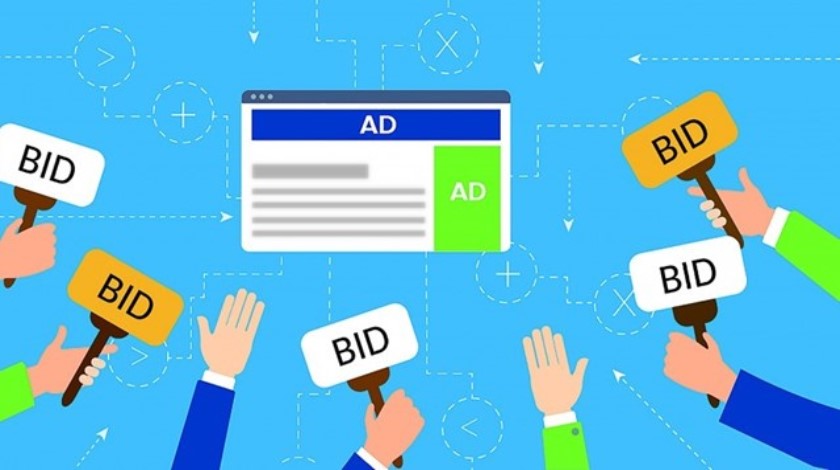Hello!
 In the fast-paced world of digital advertising, ad auctions and real-time bidding (RTB) are the backbone of determining which ads reach the right audience, at the right time, and at the right cost.
In the fast-paced world of digital advertising, ad auctions and real-time bidding (RTB) are the backbone of determining which ads reach the right audience, at the right time, and at the right cost.
For businesses and marketing agencies, mastering these mechanisms is critical to optimizing campaigns and maximizing return on investment (ROI).
Whether you’re managing Google Ads or exploring outsourcing to a Google Ads agency, this guide breaks down the essentials of ad auctions and RTB, offering actionable insights to elevate your PPC strategy.
Understanding Ad Auctions
What Are Ad Auctions?
 Ad auctions are the digital marketplace where advertisers compete to display their ads to a targeted audience. Unlike traditional auctions, these occur in milliseconds, driven by algorithms rather than human intervention. They determine which ads appear on search results, websites, or apps, balancing the needs of advertisers, publishers, and users.
Ad auctions are the digital marketplace where advertisers compete to display their ads to a targeted audience. Unlike traditional auctions, these occur in milliseconds, driven by algorithms rather than human intervention. They determine which ads appear on search results, websites, or apps, balancing the needs of advertisers, publishers, and users.
How Do They Work in PPC?
In pay-per-click (PPC) advertising, an ad auction triggers every time a user searches a keyword or visits a webpage with ad space. Platforms like Google Ads evaluate factors such as bid amount, ad relevance, and quality score to decide which ad wins the auction and gets displayed. This rapid process ensures ads are relevant to users while optimizing outcomes for advertisers.
Importance in Digital Advertising
Ad auctions level the playing field, allowing businesses of all sizes to compete effectively. A smart bidding strategy can outweigh a large budget, making expertise and precision key. For those seeking efficiency, partnering with a Google Ads agency can streamline campaign management, freeing you to focus on broader business goals. In essence, ad auctions are the cornerstone of effective, accessible digital advertising.
Basics of Real-Time Bidding
Definition and Mechanics
 Real-time bidding (RTB) is an automated auction process that happens in the blink of an eye. When a user loads a webpage, a bid request is sent to advertisers, who submit bids based on the user’s profile and context. The highest bidder’s ad is displayed, all within milliseconds. RTB powers dynamic, data-driven ad placements.
Real-time bidding (RTB) is an automated auction process that happens in the blink of an eye. When a user loads a webpage, a bid request is sent to advertisers, who submit bids based on the user’s profile and context. The highest bidder’s ad is displayed, all within milliseconds. RTB powers dynamic, data-driven ad placements.
Role in Ad Auctions
RTB is the engine behind modern ad auctions, enabling advertisers to adjust bids in real time based on user data, campaign goals, and market conditions. This flexibility sets RTB apart from static, traditional bidding systems, offering unparalleled responsiveness.
Advantages Over Traditional Bidding
- Speed: RTB operates in real time, ensuring campaigns adapt instantly to user behavior.
- Precision: Advertisers can target specific demographics, behaviors, or even individual users.
- Cost-Efficiency: You bid only what an impression is worth, optimizing your budget.
- Transparency: Real-time data provides immediate insights, allowing quick strategy adjustments.
RTB isn’t just an improvement over traditional bidding—it’s a transformative approach that empowers advertisers with control and efficiency.
Bidding Strategies
Manual vs. Automated Bidding
- Manual Bidding: Offers hands-on control by allowing you to set bids for keywords or placements. While precise, it’s time-intensive and requires constant monitoring.
- Automated Bidding: Leverages machine learning to optimize bids based on real-time data. It’s efficient and adapts quickly, ideal for dynamic campaigns.
Popular Bidding Strategies
- Cost-Per-Click (CPC): Pay only when users click your ad, perfect for driving website traffic.
- Cost-Per-Mille (CPM): Pay per 1,000 impressions, ideal for boosting brand visibility.
- Cost-Per-Acquisition (CPA): Pay when users complete a specific action (e.g., a purchase), suited for conversion-focused campaigns.
When to Use Each Strategy
- CPC: Best for campaigns targeting clicks to specific landing pages.
- CPM: Use for brand awareness when impressions matter more than immediate actions.
- CPA: Ideal for campaigns with clear conversion goals, like sales or sign-ups, to optimize acquisition costs.
 Choosing the right strategy aligns with your campaign objectives and resources, ensuring maximum impact.
Choosing the right strategy aligns with your campaign objectives and resources, ensuring maximum impact.
Common Mistakes and How to Avoid Them
Overbidding and Underbidding
- The Mistake: Overbidding drains budgets quickly, while underbidding misses valuable impressions.
- How to Avoid: Set realistic budgets and leverage automated bidding tools that adjust bids based on performance. Monitor new campaigns closely to fine-tune bids.
Poorly Defined Target Audience
- - **The Mistake**: Targeting a vague audience wastes ad spend on uninterested users.
- - **How to Avoid**: Conduct thorough audience research and use platform tools to segment users by demographics, interests, and behavior.
Lack of Tracking and Analytics
- The Mistake: Without tracking, you can’t measure campaign success or identify areas for improvement.
- How to Avoid: Implement tracking pixels and analytics dashboards. Regularly review metrics to refine your strategy.
Avoiding these pitfalls through data-driven decisions is crucial for RTB success in PPC advertising.
Future Trends
AI and Machine Learning in Bidding
 AI and machine learning are transforming RTB by automating complex bidding decisions. Future systems will analyze vast datasets in real time, optimizing bids for maximum ROI with minimal oversight, making campaigns smarter and more efficient.
AI and machine learning are transforming RTB by automating complex bidding decisions. Future systems will analyze vast datasets in real time, optimizing bids for maximum ROI with minimal oversight, making campaigns smarter and more efficient.
Blockchain for Transparency
Blockchain technology promises tamper-proof, transparent ad ecosystems. Advertisers will gain clarity on ad placements and costs, reducing fraud and ensuring trust in the bidding process.
Voice and Visual Search Implications
As voice and visual search rise, advertisers must adapt bidding strategies to new ad formats and keyword approaches. These emerging search methods will demand innovative RTB tactics to stay competitive.
The future of RTB is dynamic, with AI, blockchain, and new search paradigms reshaping how advertisers approach PPC campaigns.
Conclusion
Ad auctions and real-time bidding are the heartbeat of effective PPC advertising. By understanding their mechanics, choosing the right bidding strategies, and avoiding common mistakes, you can significantly boost your campaign ROI. With trends like AI, blockchain, and evolving search technologies on the horizon, staying informed is key to staying ahead. Ready to elevate your PPC game? Embrace real-time bidding strategies and start optimizing today.
Thank you!
Join us on social media!
See you!






